Imagine a world where the stock market dances to the rhythm of global events, swaying with every twist and turn. From political shake-ups to economic indicators, from natural disasters to technological breakthroughs, it’s as if the market has a mind of its own.
In this whimsical journey, we will explore the role of these events in shaping stock market movements. Strap on your seatbelt and get ready for a wild ride through the intricate web of global happenings that can make or break your investments.
Welcome to the captivating realm where global events reign supreme over the stock market!
Key Takeaways
- Global events such as pandemics, geopolitical conflicts, natural disasters, and economic crises have historically impacted stock markets, leading to panic, plummeting stock prices, and market instability.
- Political events, such as surprise elections, trade wars, geopolitical turmoil, changes in regulations, and political stability, can create uncertainty and fluctuations in the stock market.
- Economic indicators, including inflation rates, monetary policies, GDP growth, unemployment rates, and consumer sentiment, have a direct influence on global stock market movements.
- Natural disasters, such as pandemics, climate change, natural catastrophes, disruptions in the energy sector, and impacts on the insurance industry, can significantly affect stock market performance.
Historical Examples of Global Events Impacting Stock Markets
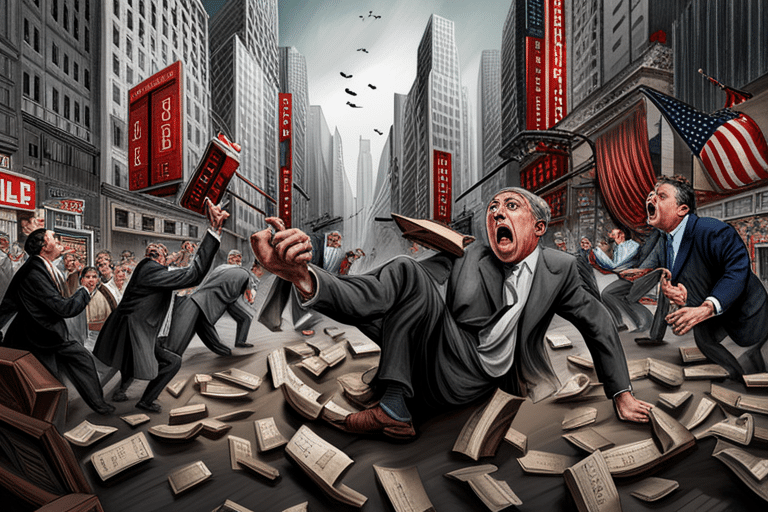
Historical examples show how global events have significantly impacted stock markets. It’s like watching a roller coaster ride, with twists and turns that leave you breathless.
Take the impact of pandemics, for instance. Picture this: investors are going about their business, buying and selling stocks like it’s just another day in the market. Suddenly, news breaks out about a deadly virus spreading across continents faster than wildfire. Panic ensues, and before you know it, stock prices plummet faster than your heart rate during a scary movie.
But pandemics aren’t the only culprits here. Oh no! Geopolitical conflicts have also played their part in shaking up the stock market. Imagine waking up to headlines screaming about tensions between two superpowers on the brink of war. The uncertainty grips investors tightly in its clutches, causing them to sell off their stocks faster than you can say ‘global crisis.’ And just like that, share prices take a nosedive as if they’re trying to escape from all the drama.
Now that we’ve explored these historical examples of global events impacting stock markets, let’s delve deeper into the relationship between political events and stock market volatility. Strap yourself in because things are about to get even more exciting!
From elections to policy changes, every political move has a way of sending shockwaves through the world of finance.
The Relationship Between Political Events and Stock Market Volatility
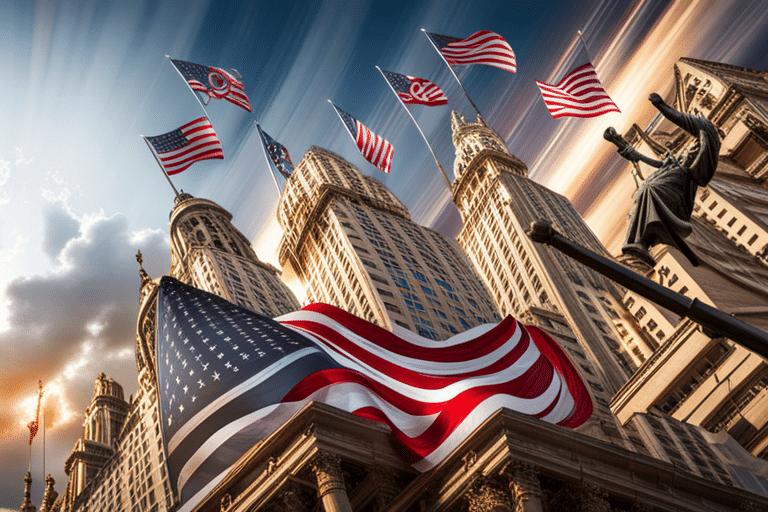
When it comes to political events, you can’t underestimate their impact on stock market volatility. It’s like mixing Mentos and Diet Coke – things are bound to get fizzy! So, let’s dive into the fascinating relationship between political events and market sentiment.
Strap on your seatbelt and prepare for a wild ride!
-
Surprise Elections: Picture this – a country is going about its business when suddenly, BAM! A surprise election shakes things up. Investors start biting their nails wondering how the new leadership will affect policies and regulations. Will they be pro-business or anti-business? Uncertainty creeps in, causing the market to do a little dance.
-
Trade Wars: Ah, trade wars – the ultimate tug-of-war between nations. When geopolitical tensions rise and countries impose tariffs left and right, investors start sweating bullets (figuratively of course). The fear of decreased global trade sends shockwaves through markets faster than you can say ‘trade deficit.’
-
Geopolitical Turmoil: Imagine waking up one day to news headlines screaming about political unrest in a major country. You don’t need caffeine to jolt you awake because the stock market is already doing that job for you. Geopolitical tensions such as conflicts or terrorist attacks have an uncanny ability to send stock prices on a rollercoaster ride.
Now that we’ve explored these examples, it’s clear that political events can have a profound impact on stock market performance. Their influence is like adding hot sauce to your favorite dish – it adds spice and unpredictability.
Economic Indicators and Their Influence on Global Stock Market Movements
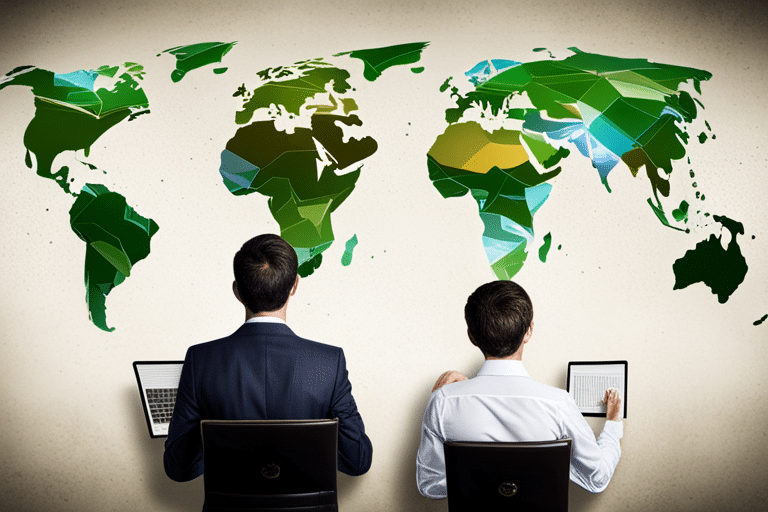
As an investor, you should pay close attention to economic indicators as they can greatly influence the movement of stocks worldwide. Economic indicators are like little breadcrumbs that give you hints about the state of the global economy. They can help you make better decisions when it comes to buying or selling stocks. So, let’s take a whimsical journey into the world of economic indicators and see how they impact the stock market.
To fully understand how these indicators work, let’s dive into a magical table that will guide us through this mystical adventure:
| Indicator | Description |
|---|---|
| Inflation Rates | The rate at which prices for goods and services rise over time. High inflation rates may indicate an overheating economy, while low inflation rates could suggest sluggish growth. |
| Monetary Policies | Actions taken by central banks to manage money supply and interest rates in order to achieve stable economic growth. These policies have a direct impact on borrowing costs and investment decisions. |
Now that we have our enchanted table set up, let’s explore how these two key factors influence stock markets around the world.
Inflation rates play a crucial role in determining the purchasing power of consumers and businesses alike. When inflation is high, people tend to spend less, leading to lower corporate profits and potential declines in stock prices. On the other hand, low inflation rates can stimulate spending and boost company earnings, which often translates into higher stock market returns.
Monetary policies also hold immense power over stock market movements. When central banks implement expansionary monetary policies (lowering interest rates or increasing money supply), borrowing becomes cheaper, encouraging businesses to invest more and potentially driving up stock prices. Conversely, contractionary monetary policies (raising interest rates or reducing money supply) can tighten credit conditions and dampen investment sentiment, leading to lower stock market performance.
How Natural Disasters Affect Stock Market Performance
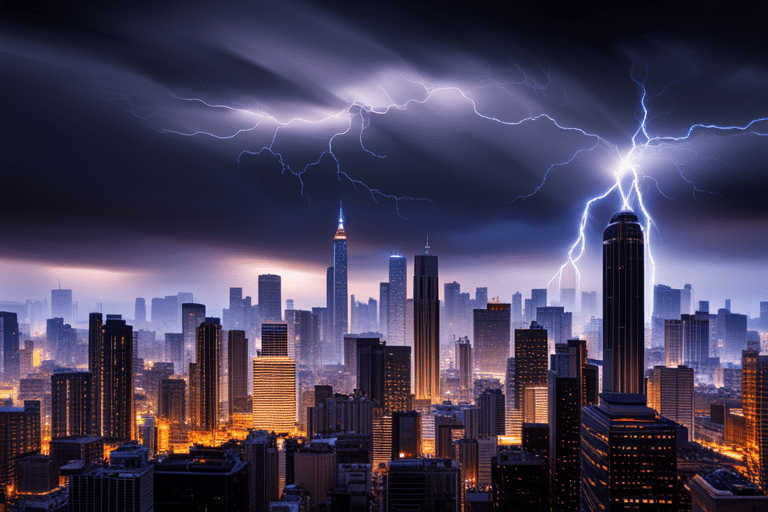
Dear investor, you may be curious to know how natural disasters impact the performance of stocks. Well, buckle up and prepare for a wild ride because when Mother Nature unleashes her fury, the stock market can get a little topsy-turvy. But fear not, for I am here to guide you through this tempestuous journey.
So, without further ado, let’s dive into the impact of natural disasters on stock market performance:
-
Pandemics: Ah, the dreaded pandemics! These global health crises have a way of sending shockwaves through financial markets. Just think about it – when people are confined to their homes and businesses come to a screeching halt, it’s bound to affect company revenues and investor confidence.
-
Climate change: The influence of climate change on stock market performance is no joke. As extreme weather events become more frequent and intense, industries like insurance and agriculture can suffer significant losses. And let’s not forget about renewable energy companies that stand to benefit from increased demand for sustainable solutions.
-
Insurance industry: When hurricanes strike or earthquakes rumble, insurance companies bear the brunt of these natural calamities. With massive payouts for damages, their profitability can take a hit which in turn affects their stock prices.
Now that we’ve explored these subtopics with great finesse (if I do say so myself), you’re armed with knowledge that will make other investors green with envy. Remember, dear investor, understanding how natural disasters impact the stock market is just one piece of the puzzle in your quest for mastery in the world of investing. So keep learning and keep those portfolios thriving!
The Role of Technological Breakthroughs in Shaping Stock Market Trends
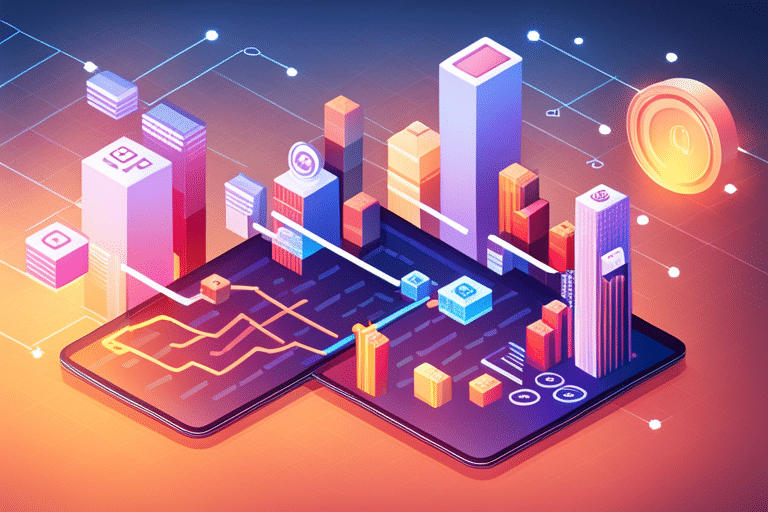
You’ll be amazed at how technological breakthroughs shape trends in the stock market. It’s like a little dance between innovation and investment, where the latest gadgets and gizmos can send stock prices soaring or plummeting faster than you can say ‘algorithm.’
One of the key players in this high-tech tango is artificial intelligence (AI). AI algorithms are programmed to analyze vast amounts of data, identify patterns, and make predictions about stock market movements. These super-smart machines can crunch numbers faster than you can blink an eye, helping investors make more informed decisions. So next time you see a robot on Wall Street, don’t be surprised if it’s calling the shots.
But it’s not just AI that’s shaking things up in the stock market. Social media has also become a powerful force in shaping trends. With billions of users worldwide sharing their thoughts and opinions online, social media platforms have become veritable treasure troves of information for savvy investors. From influencers hyping up certain stocks to viral posts causing sudden spikes or drops in prices, social media has turned into its very own virtual trading floor.
As we bid adieu to our tech-infused dance partners, let’s turn our attention to yet another player on the global stage: global trade. The interconnectedness of economies around the world means that events happening thousands of miles away can have a ripple effect on your portfolio. Trade wars, tariffs, and political tensions all have the potential to send shockwaves through the stock market. So buckle up and get ready for a wild ride as we explore how global trade impacts those ever-fluctuating tickers!
Global Trade and Its Impact on Stock Market Fluctuations
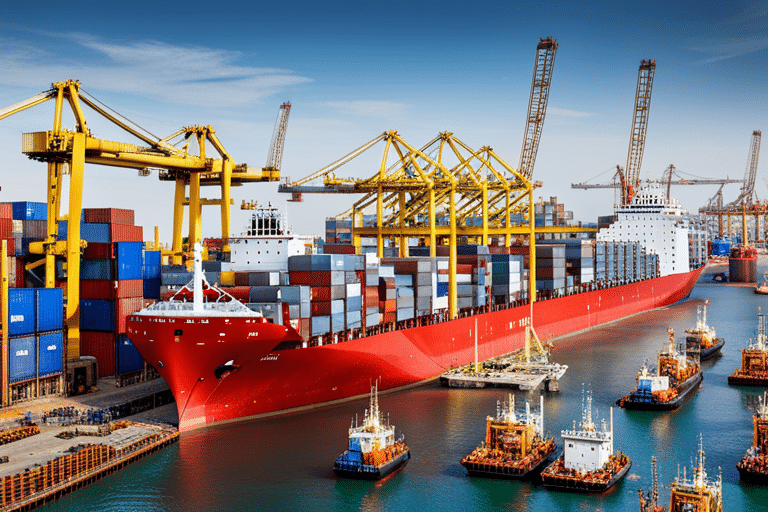
So, you want to dive into the fascinating world of trade wars and stocks? Well, buckle up because things are about to get bumpy!
We’re going to explore how global trade and its interconnectedness can send shockwaves through the stock market, causing it to do a little dance.
And let’s not forget about good ol’ globalization, the force that has made the world feel like one big marketplace. But with this interconnectedness comes some volatility in the market that can leave even seasoned investors scratching their heads.
Trade Wars and Stocks
The ongoing trade war between the United States and China has had a significant impact on stock market movements. It’s like a game of tug-of-war, but instead of ropes, it’s tariffs being thrown back and forth.
So, what does this mean for you, the master of stocks? Well, grab your magnifying glass and let’s dive into the world of trade wars and stocks:
- Trade War Impact:
- Increased uncertainty: Investors hate uncertainty more than a cat hates water.
- Market volatility: Buckle up because it’s going to be a wild ride.
- Sector-specific effects: Some industries might suffer while others thrive.
But fear not! There may be light at the end of this turbulent tunnel. The possibility of a trade war resolution could bring stability to the stock market dance floor. So keep your eyes peeled for any signs of détente between these economic giants.
Happy trading!
Globalization and Market Volatility
Globalization has led to increased market volatility, creating both opportunities and challenges for investors. It’s like a rollercoaster ride, with twists and turns that keep you on the edge of your seat. One moment, markets are soaring high on the wings of international trade, and the next moment they’re plummeting due to unforeseen disruptions. To help you navigate this wild ride, let’s take a look at how globalization impacts financial markets in a handy table:
| Globalization and Financial Markets |
|---|
| International Trade |
| Market Stability |
When countries engage in international trade, it opens up new avenues for growth and investment. But it also means that events happening halfway across the world can send shockwaves through your portfolio. The key is to stay informed, adapt quickly, and make calculated moves that capitalize on these global trends.
The Psychological Factors Driving Stock Market Reactions to Global Events

When it comes to the psychological factors driving stock market reactions to global events, fear and uncertainty play a significant role. It’s like being on a roller coaster ride, where your emotions are tossed around like a ragdoll in the wind.
But hey, don’t fret! Understanding these psychological factors can help you navigate the unpredictable world of stock markets with confidence and finesse.
So, let’s dive into the fascinating realm of investor sentiment and explore how our minds shape market movements:
-
Herd Mentality: Humans are social creatures, and when it comes to investing in stocks, we tend to follow the crowd. We look for cues from others and often make decisions based on what everyone else is doing. It’s like standing in line for the latest iPhone – if everyone else is lining up, there must be something worth waiting for!
-
Loss Aversion: We hate losing more than we love winning – it’s just how our brains are wired. This aversion to losses can lead us to make irrational decisions when faced with market downturns. We hold onto losing stocks longer than we should in hopes of recouping our losses or avoid selling at a loss altogether.
-
Overconfidence Bias: Ever feel like you’re invincible? Well, that feeling can spill over into your investment decisions too. Sometimes we become overly confident about our abilities as investors and take on more risk than we should. It’s like thinking you’re the next Warren Buffett after a few successful trades – caution tape ahead!
Understanding these psychological factors can give you an edge in navigating the complex world of stock markets. So remember, stay calm amidst chaos, trust your instincts but always do your research, and never forget that sometimes even Wall Street needs therapy sessions!
Happy investing!
Frequently Asked Questions
What Are Some Specific Examples of Historical Global Events That Have Had a Significant Impact on Stock Markets?
“Hey, let’s talk about the impact of historical global events on stock markets. Remember the Great Depression? Yeah, that was a doozy. And who can forget the 9/11 attacks? Both had major ripple effects.”
How Do Political Events, Such as Elections or Policy Changes, Contribute to Stock Market Volatility?
Political events, like elections or policy changes, can cause stock market volatility. When political instability arises or economic policies shift, investors get jittery. It’s like a roller coaster ride for your portfolio!
Can You Explain the Different Economic Indicators That Can Influence Global Stock Market Movements?
Sure! Economic indicators like GDP growth, inflation rates, and unemployment levels can all influence global stock market movements. They provide valuable insights into the state of the economy and affect market sentiment.
How Do Natural Disasters, Such as Earthquakes or Hurricanes, Affect the Performance of Stock Markets?
Natural disasters, like earthquakes or hurricanes, can rock the stock market boat. When these events strike, investors often panic and sell their stocks, causing prices to plummet. It’s a stormy ride for sure!
What Role Do Technological Breakthroughs, Such as the Introduction of New Inventions or Advancements, Play in Shaping Stock Market Trends?
Technological disruptions can cause innovation-driven market shifts. When new inventions or advancements occur, the stock market responds accordingly. The impact of these breakthroughs on stock prices is significant and cannot be ignored.
Conclusion
So, there you have it! The world of stock markets is a wild and unpredictable ride, influenced by all sorts of global events.
From political turmoil to natural disasters, everything has an impact on those numbers that seem to go up and down like a rollercoaster.
But here’s an interesting tidbit to keep you engaged: did you know that during the 2008 financial crisis, the S&P 500 lost over 50% of its value? Woah, talk about a big dip!
So next time you hear about a major global event, remember to keep an eye on those stocks – who knows what kind of adventure awaits!

